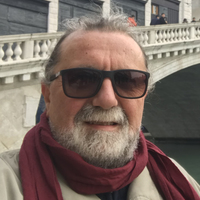We, scholars of urban studies, have a problem with authenticity. One hears the word frequently in discussions of gentrification, urban regeneration, place-making, and ethnic clustering. In most cases, however, our use of the term is... more
We, scholars of urban studies, have a problem with authenticity. One hears the word frequently in discussions of gentrification, urban regeneration, place-making, and ethnic clustering. In most cases, however, our use of the term is elusive. Sometimes we refer to authenticity as an asset, as the possession of an original place or community that needs to be safeguarded. At other times, authenticity is associated with the production of Disneyfied landscapes of consumption, with the control of citizens, and with the exclusion of vulnerable groups. Part of this ambiguity lies in the fact that authenticity is indeed a cryptic concept loaded at once with notions of authority and resistance. Nevertheless, I am convinced that authenticity persists as an omnipresent, if vague, notion in urban studies because we have not yet explored systematically how it actually functions in the city. That is, we have given too little attention to how a city's users and producers negotiate and construct values of "the authentic" and to how these values determine the physical and social production of space.
Dafina Gerasimovska | Darko Nikolovski | Zoran Pavlov | Cvetanka Haxhi Pecova | Snezhana Gerasimova Mateska
Dafina Gerasimovska | Darko Nikolovski | Zoran Pavlov | Cvetanka Haxhi Pecova | Snezhana Gerasimova Mateska
Дафина Герасимовска | Дарко Николовски | Зоран Павлов | Цветанка Хаџи Пецoва | Снежана Герасимова Матеска
